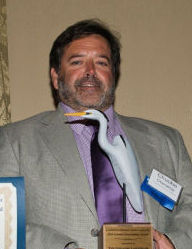
Parish president candidate, councilman disqualified from races
September 23, 2015First Amendment to the Constitution of the United States
September 29, 2015A Jefferson Parish judge heard argument from attorneys for a local television station and the convenience store its on-air owner is accused of defaming Thursday morning, and said she is expected to render a decision on whether the case should proceed within the next week.
Judge Nancy Miller of the 24th Judicial District must determine whether Trio Leasing, its affiliates and a clerk that worked for them are attempting to chill constitutionally protected speech by HTV owner Martin Folse by filing th defamation lawsuit.
Folse’s attorneys raised the issue under Louisiana’s “Strategic Lawsuit Against Public Participation” statute after the defamation suit was filed. A so-called SLAPP suit is defined by legal experts as a legal action “intended to censor, intimidate, and silence critics by burdening them with the cost of a legal defense until they abandon their criticism or opposition.”
In Louisiana, for a suit to be branded a SLAPP, the defendant must show that it arose from an act in furtherance of his right of free speech in connection with a public issue, according to the Reporter’s Committee on Freedom of the Press.
Because Folse raised the SLAPP issue, Judge Miller must decide that question before continuing with other aspects of the lawsuit against his station.
The suit was brought in connection with an airing of Folse’s news and public affairs program, Bayou Time, during which he related details of a dispute between a clerk at the Roadrunner convenience store at La. Hwy 311 and St. Charles Street and a Houma neurosurgeon, Dr. Phillip McAllister.
The clerk, Saghar Simkhada, a native of Nepal in the U.S. on a student visa, allegedly used profane language, calling the doctor a “f— a—.“ McAllister alleged that when he disclosed his status as a veteran to Simkhada, the clerk told him that “all veterans are f— a—s.”
The dispute, both sides allege, occurred after Simkhada sold the doctor the wrong cut of chewing tobacco.
During his show Folse, who stated that he was told Simkhada was a Middle Eastern male,” showed video of raids on Houma-area convenience stores where synthetic marijuana was sold, alleging that, according to information from law enforcement authorities, half of such stores send money to the Middle East to fund terrorist operations.
Attorneys for the Roadrunner litigants maintain in court papers that the result was a suggestion that the store was among them. The store was damaged, the suit alleges, by a boycott that was discussed on the program as well as ill will related to a protest by veterans and their supporters which resulted in a day-long shutdown of the store.
McAllister was also sued, and his attorney argued that because all he did was relate his experience to Folse – which is protected speech – that the allegations against him should be dismissed as well.
During arguments Thursday one of Folse’s attorneys, Mary Ellen Roy, said the convenience store incident “was an issue of public interest in and of itself,” as one of the elements required for the judge to decide that the anti-SLAPP issue applies and that the case should be dismissed.
“The context is the treatment of veterans, how a veteran is treated when he goes into a business establishment,” Roy said. “If you look a the context and the form of the statements that just corroborates it as a matter of public interest … There are a lot of issues being discussed in the community about the sale of synthetic marijuana and money going to fund terrorism.”
Referencing a transcript of the show provided to the court, Roy argued that Folse never specifically said on the show that the Roadrunner store was selling synthetic marijuana or that it was involved with terrorist activities.
“Even if you assume arguendo that Mr. Folse did say that money from this store was going to support terrorism, the burden is on the plaintiff to prove falsity and malice,” Roy said, stating that the plaintiffs will be unable to prove falsehood or specific malice.
The attorney for the store and the clerk, Paul Carriere, accused Folse of “bootstrapping public issue such as terrorizing … and synthetic marijuana into this lawsuit.”
The dispute between Simkhada and McAllister, Carriere said, was a private matter.
“The comments have to be made in connection with a public matter,” Carriere said, for the anti-SLAPP arguments to apply.
Miller said she would take the case under advisement and issue a decision on the anti-SLAPP question in about a week’s time.
HTV owner Martin Folse leaves the 24th Judicial District courthouse in Gretna.










